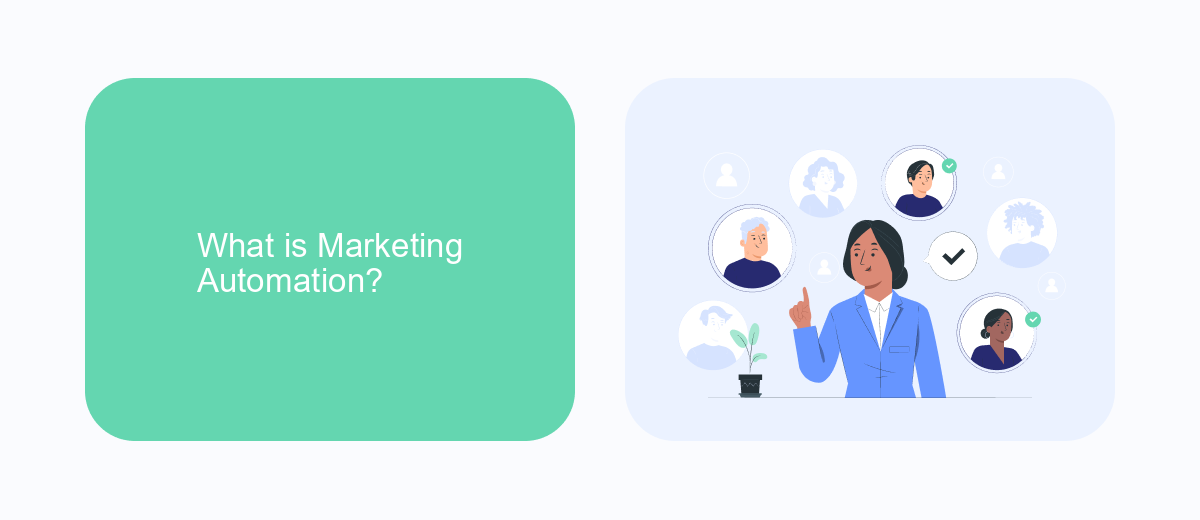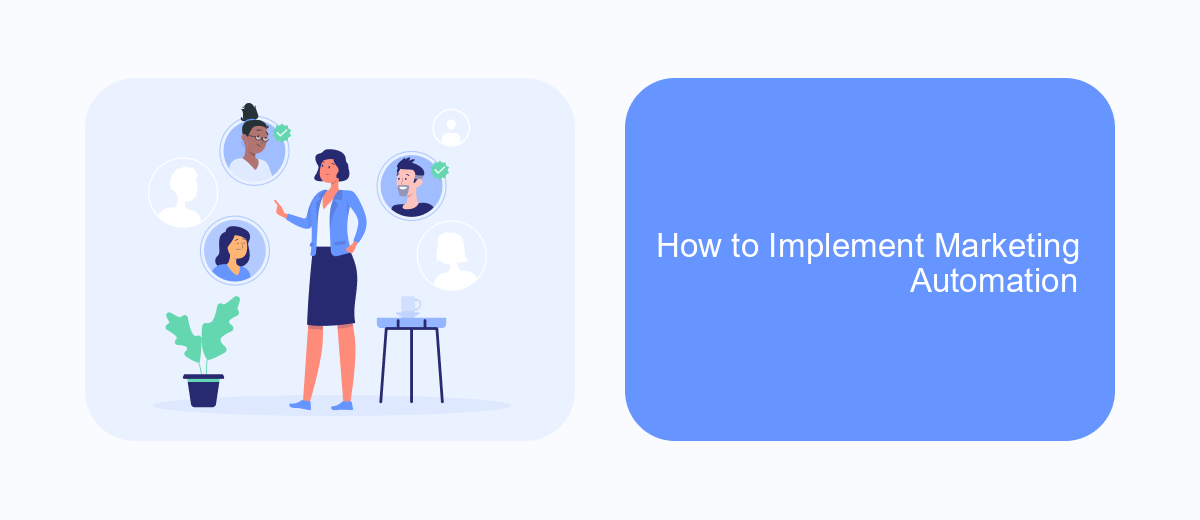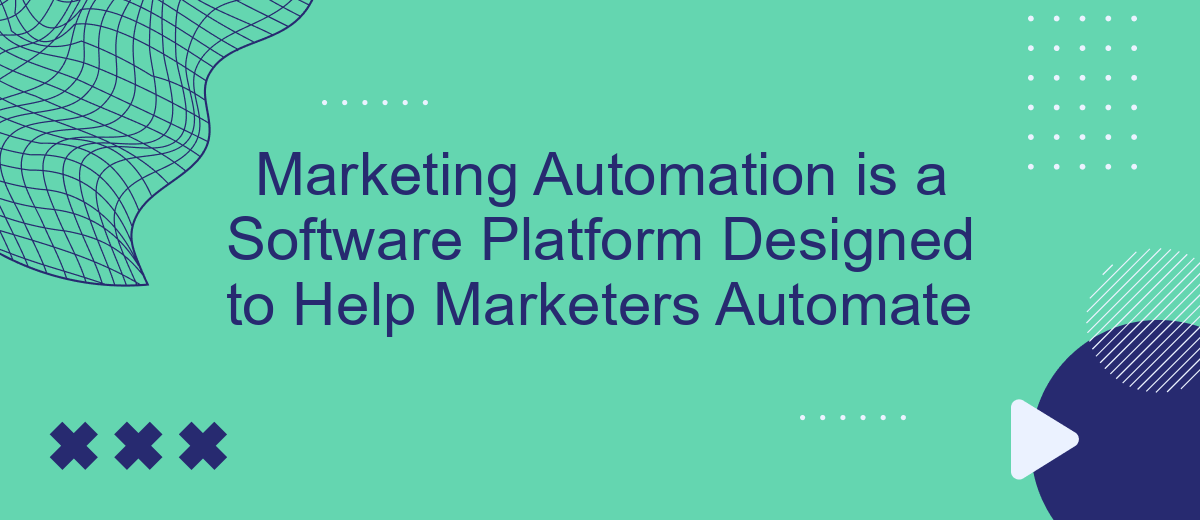Marketing automation is revolutionizing the way businesses approach their marketing strategies. Designed to streamline and enhance the efficiency of marketing efforts, these software platforms empower marketers to automate repetitive tasks, manage multi-channel campaigns, and personalize customer interactions at scale. By leveraging data-driven insights, marketing automation not only saves time and resources but also drives engagement and fosters deeper connections with target audiences, ultimately boosting overall business performance.
Introduction
In today's fast-paced digital landscape, marketing automation has become a critical tool for businesses aiming to optimize their marketing efforts. Marketing automation platforms are designed to streamline, automate, and measure marketing tasks and workflows, allowing marketers to increase operational efficiency and grow revenue faster. By automating repetitive tasks, marketers can focus on more strategic activities, such as crafting compelling campaigns and engaging with their audience more effectively.
- Automate repetitive marketing tasks like email campaigns, social media posting, and ad management.
- Enhance customer engagement by delivering personalized content at the right time.
- Improve lead generation, nurturing, and conversion processes.
- Gain valuable insights through analytics and reporting to refine marketing strategies.
- Increase overall marketing efficiency and return on investment (ROI).
As businesses continue to adopt digital transformation strategies, the role of marketing automation becomes increasingly vital. It not only empowers marketers to achieve more with less effort but also ensures a more personalized and timely interaction with customers. This introduction to marketing automation sets the stage for exploring how these platforms can transform marketing efforts, drive business growth, and create a competitive edge in the marketplace.
What is Marketing Automation?

Marketing automation refers to the use of software platforms and technologies designed to automate repetitive marketing tasks and streamline workflows. By utilizing marketing automation tools, businesses can efficiently manage campaigns across multiple channels, such as email, social media, and websites, without the need for constant manual intervention. This technology helps marketers target their audiences more effectively, personalize their messaging, and ultimately drive better engagement and conversions. The goal is to nurture prospects with highly personalized, useful content that helps convert prospects to delighted customers.
One of the key benefits of marketing automation is its ability to integrate with various platforms and services, enhancing the overall marketing strategy. For instance, tools like SaveMyLeads can facilitate seamless integration by automatically transferring leads from social media platforms to a CRM or email marketing system. This kind of integration ensures that valuable data is not lost and that leads are followed up promptly and effectively. By automating these processes, marketers can focus more on strategy and creative aspects, rather than getting bogged down by routine tasks.
Benefits of Marketing Automation

Marketing automation has become an essential tool for businesses looking to streamline their marketing efforts. By automating repetitive tasks, marketers can focus on more strategic activities that drive growth and engagement. This technology not only saves time but also enhances the accuracy and efficiency of marketing campaigns.
- Improved Efficiency: Automation eliminates manual tasks, allowing teams to allocate resources more effectively.
- Personalized Customer Experience: Tailor messages to individual preferences, enhancing customer satisfaction and loyalty.
- Data-Driven Insights: Gain actionable insights through analytics, enabling informed decision-making.
- Lead Nurturing: Automate lead scoring and nurturing processes to convert prospects into loyal customers.
- Cost Savings: Reduce the need for extensive manpower, leading to significant cost reductions.
By leveraging marketing automation, businesses can not only improve their operational efficiency but also foster stronger relationships with their customers. The ability to deliver personalized content at scale ensures that marketing efforts are both targeted and effective, ultimately driving better results. As the digital landscape continues to evolve, marketing automation remains a critical component for any successful marketing strategy.
How to Implement Marketing Automation

Implementing marketing automation can significantly enhance your marketing efforts by streamlining processes and increasing efficiency. To start, it's crucial to define your goals and objectives. Understanding what you want to achieve will guide your strategy and help select the right tools.
Next, assess your current marketing processes and identify areas that could benefit from automation. This evaluation will help you pinpoint specific tasks and workflows that can be automated, such as email campaigns, social media posting, or lead nurturing.
- Choose the right marketing automation platform that aligns with your business needs and budget.
- Integrate the platform with your existing systems, such as CRM and analytics tools.
- Develop a content strategy to ensure you have valuable and relevant material for automated campaigns.
- Train your team to use the new tools effectively and monitor performance regularly.
Finally, continuously analyze the results of your automated campaigns. Use data insights to refine and optimize your strategy over time, ensuring that your marketing automation efforts deliver the desired outcomes and support your overall business objectives.
- Automate the work with leads from the Facebook advertising account
- Empower with integrations and instant transfer of leads
- Don't spend money on developers or integrators
- Save time by automating routine tasks
Conclusion
In conclusion, marketing automation platforms have become indispensable tools for modern marketers, allowing them to streamline and optimize various marketing processes. By automating repetitive tasks such as email campaigns, social media posting, and lead nurturing, marketers can focus on more strategic initiatives that drive growth and enhance customer engagement. These platforms not only save time but also provide valuable insights through data analytics, enabling marketers to make informed decisions and tailor their strategies to meet the evolving needs of their audience.
Moreover, the integration capabilities of marketing automation platforms significantly enhance their functionality. Tools like SaveMyLeads facilitate seamless integration with various services, ensuring that data flows smoothly between different systems. This connectivity allows marketers to maintain a unified view of their customer interactions across multiple channels, leading to more personalized and effective marketing efforts. As businesses continue to embrace digital transformation, the role of marketing automation will undoubtedly grow, empowering marketers to deliver more targeted and efficient campaigns.
FAQ
What is marketing automation and how does it benefit businesses?
How can marketing automation improve lead management?
What types of tasks can be automated with marketing automation software?
How does SaveMyLeads help in setting up marketing automation?
Is marketing automation suitable for small businesses?
Personalized responses to new clients from Facebook/Instagram. Receiving data on new orders in real time. Prompt delivery of information to all employees who are involved in lead processing. All this can be done automatically. With the SaveMyLeads service, you will be able to easily create integrations for Facebook Lead Ads and implement automation. Set up the integration once and let it do the chores every day.

